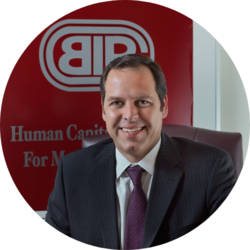
How to Switch Careers
Do you need to make a job change due to the Covid-19 crisis? Is your career a dying profession? Do you find yourself dreaming about life with a new career? Does your job no longer interest you? Or does it feel like you have reached the ceiling within your work and you want new promotion and growth opportunities? The average person will change jobs somewhere about 11 times according to the Bureau of Labor Statistics, and it is estimated that the average person changes careers two to three times in their lifetime.
You are not out of line if you want to change your career, and if you are wise, you will look to others for expert guidance on how to do so. Changing jobs in your thirties is not the same as changing careers straight out of college, and changing your field of work in your fifties is certainly not the same as in your thirties.
Starting over will require you to gain some new knowledge, and accept that you may not be able to transition to a new field at the top of your game. That doesn’t mean you shouldn’t try; it just means you need to have a clear plan before you take a leap of faith. Here are some steps and general advice to help make the shift a bit smoother.
Identify the Why and the What
Before jumping to a new career, take a second to figure out why you want to make the change. Before steamrolling into a new job, step back and attempt to be more self-aware about what is leading your decision. Do you feel like you are outgrowing your job because of the material, or because you tend to get bored easily? If it’s the latter, you could be making a huge leap that will end with the same result. You also need to consider where you plan to land, and whether there is any career capital that will help you transition. Are you looking at an entirely new career, or will you be able to utilize your contacts and skills to help make the shift easier? While it sounds great, “following your passion” does not always lead you into the right spot emotionally or financially.
Try a New Job for the Size
Sure, you can’t just walk into a zoo and become a vet, but you can talk to a local vet and see if you can shadow them for a day at the office. Maybe you can’t work as a manager for a Fortune 500 company, but you can find a mentor who can offer you insight into the new position. Leverage any contacts you have, both professional and personal, to get your toes wet in the career you can consider. Ask the experts for their input, and use your experience to see if the job is a good fit and if you have any career capital that can transfer. Use your experience as a time to ask questions and build as much knowledge before making a shift. If the expert works for your own company, ask to accompany him or her to meetings or customer visits, or just ask if you can shadow them. When doing so, ask yourself why the expert handled it a certain way and if you would have done it differently. Always ask if they can debrief and explore “why” and if there were any other alternatives considered.
Self-Study
Most people do not have a financial situation that allows them to quit their job while they pursue another. Instead, start learning about your new proposed career before making a change. Study up on it as much as you can and build your knowledge base. The more you learn, the more you can prepare, and the more impressive you will look during interviews. If your new career will require more education, start looking into online courses. Taking a class or two while still working is a great way to make the transition more financially viable. Plus, it helps you gain contacts along the way.
Talk to the Experts
Most managers and experts love to talk and share their knowledge. Call a local expert in the field you are considering and explain that you are considering a career change. Ask them if they have time for a brief meeting or a phone or facetime conversation where they can share some insight. Appeal to their sense of importance, and you may be surprised at how many will say yes. Firsthand conversations are a great way to discover more about a new career and what is needed to succeed and once again start to build contacts. Don’t forget to ask for examples. Compare yourself to the experts’ skills and knowledge and assess the gap that exists between you and them. If there is a big gap, then you may want to consider if you have the passion, energy, time and resources to shorten that gap in order to succeed in making the jump to a new career. The key is being honest with yourself.
Increase Your Visibility
One common variable in almost all of these steps is visibility. Every step you make can help you build contacts and a new professional network if you take advantage of opportunities. Regardless of what career you are pursuing, networking is vital to success. Talk to experts, use their knowledge, and showcase your new expertise. Do whatever it takes, but make sure your efforts are visible and noteworthy to help make your career transition a positive one.
The path to a new career is not always smooth, but with any luck, approaching the decision logically can help make it less bumpy. The key to moving to a new career is transparency and an open mind. Do your homework. Make you have the basic skillset. Be open to what other experts have to say and show that you are willing to take that knowledge and learning and apply it to your new career.
Get in Touch with an Expert
At Barbachano International we understand how important these human resource issues are for companies that operate globally. Feel free to contact us or visit our blog.

By Fernando Ortiz-Barbachano
President and CEO of Barbachano International (BIP),
The Human Capital Solutions leader in Mexico, Latin America, and the USA, offering high-impact executive search, executive coaching, and outplacement.
About Barbachano International
Barbachano International (BIP) is the premier executive search and leadership advisory firm in the Americas (USA, Mexico, Latin America, & Canada) with a focus on diversity and multicultural target markets. Outplacement and Executive Coaching services are provided by our sister allied company Challenger Gray & Christmas. Since 1992, BIP and its affiliates have impacted the profitability of over 50% of Fortune 500 Companies. BIP has been recognized by Forbes as Americas’ Best Executive Search Firms and currently ranks #27 and #3 on the West Coast. Headquartered in San Diego, California with satellite offices in Florida and Mexico. As member-owners of NPAworldwide Recruitment Network, we are supported by partner offices in over 50 countries.



